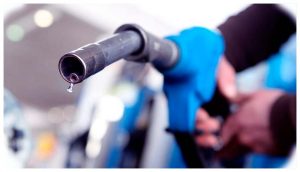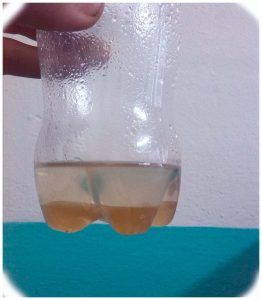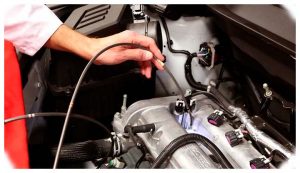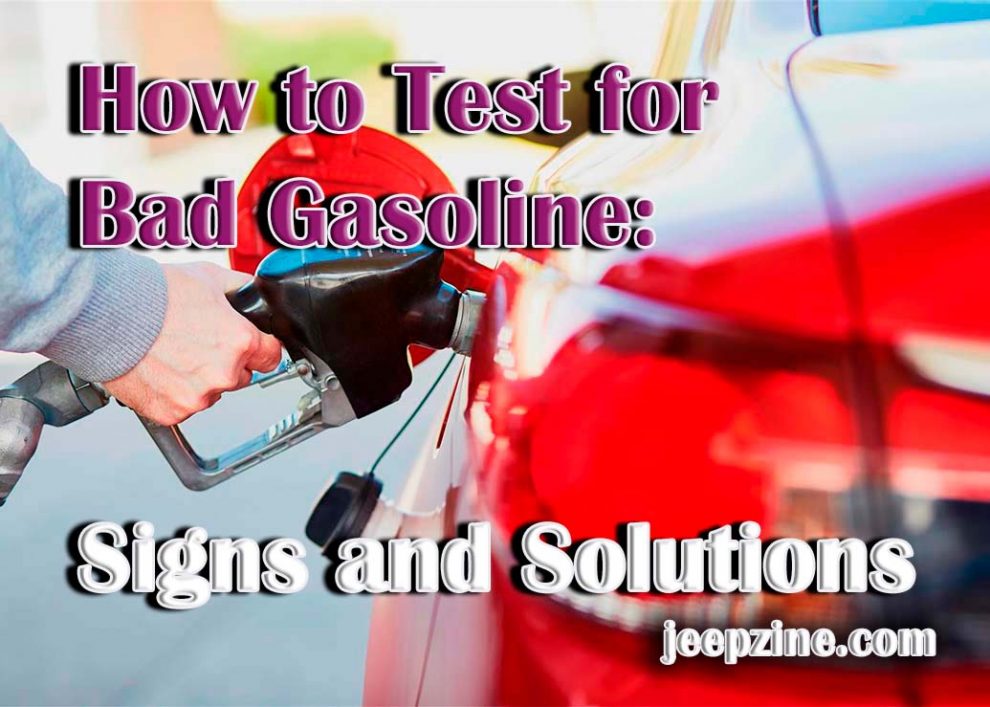Gasoline is a volatile fuel that is essential for powering your vehicle. It’s important to have quality gasoline to ensure your vehicle’s reliable and safe operation. Without it, you risk poor engine performance, decreased fuel efficiency, and other issues which could lead to dangerous situations on the road. In this article, we’ll discuss how to test for bad gasoline and what solutions are available if it’s contaminated or otherwise compromised.
Signs of Bad Gasoline

Poor engine performance – If your engine sputters or stalls while idling or under load, there could be an issue with the gas quality in your tank. This can be especially noticeable if you recently switched gas brands or refilled at a different station than usual.
Decreased fuel efficiency – If you notice that your vehicle is consuming more gas than usual despite no change in driving habits, this could also indicate bad gasoline in your tank.
Unusual engine sounds – Knocking or pinging noises from the engine can also be signs of bad gasoline and should be tested for further diagnosis.
Difficulty starting the engine – If it takes longer than usual to start your car or you have to crank it several times before it starts, this could be a sign of bad gasoline in your tank.
Fuel system issues – If you notice that your vehicle is consuming more gas than usual despite no change in driving habits, this could also indicate bad gasoline in your tank.
Causes of Bad Gasoline
Bad gasoline can come from a number of sources:

Poor storage conditions – Gasoline that’s stored for long periods of time without proper safeguards can degrade due to oxidation and other chemical reactions, leading to poor performance when used.
Age – Old fuel can become contaminated over time with tiny particles suspended in the fuel, leading to poor performance and hard starting issues with the engine if used for too long without being replaced with fresh gasoline.
How to Test for Bad Gasoline
Testing for bad gasoline is relatively simple and can be done in a few ways:
Visual inspection – Looking at the fuel in the tank can help you determine if any contaminants, such as water, debris, or rust, may be causing problems.
Smell test – If your vehicle is having start or running issues, sniffing the fuel can help you detect any odd smells that could indicate contamination or degradation of the fuel.
Performance test – Running your vehicle with a full tank of gas and monitoring its performance can help you determine if there are any issues related to the quality of the gasoline being used.
Water and sediment test – Doing a water and sediment test on your gas will tell you if any particles, dirt, rust, or other contaminants are suspended in the fuel that could be impacting its performance.
Solutions for Bad Gasoline
Once you’ve identified bad gasoline as being the cause of your engine troubles, then it’s important to take action to remedy it as soon as possible:
Prevention – Taking steps to ensure that only quality gasoline is used in your vehicle is key and can be done by using only trusted brands, filling up at reliable gas stations, and only storing gasoline in clean, airtight containers.
Fuel additives – Certain fuel additives can help to improve the quality of contaminated gasoline and can be added directly to the tank when refilling with fuel.

Fuel filter replacement – Replacing your fuel filter will also help to remove any particles or contaminants that could be negatively impacting engine performance and causing poor running issues.
Fuel tank cleaning – A professional can also provide a full fuel tank cleaning service to remove all old gasoline from the tank and replace it with clean, fresh fuel for optimal performance.
Seeking professional help – If you still have issues after taking preventative measures or trying some of these solutions yourself, it may be time to seek more expert advice from a qualified auto technician who can assess the situation further and recommend appropriate solutions to your vehicle’s needs.
Conclusion
Having quality gasoline in your vehicle is essential for reliable and safe operation. While testing for bad gasoline can be relatively simple, it’s important to take any necessary steps to remedy the problem as soon as possible in order to prevent further damage or dangerous situations on the road. By following this guide and seeking professional help when needed, you can ensure that you have quality fuel in your vehicle at all times.


Add Comment